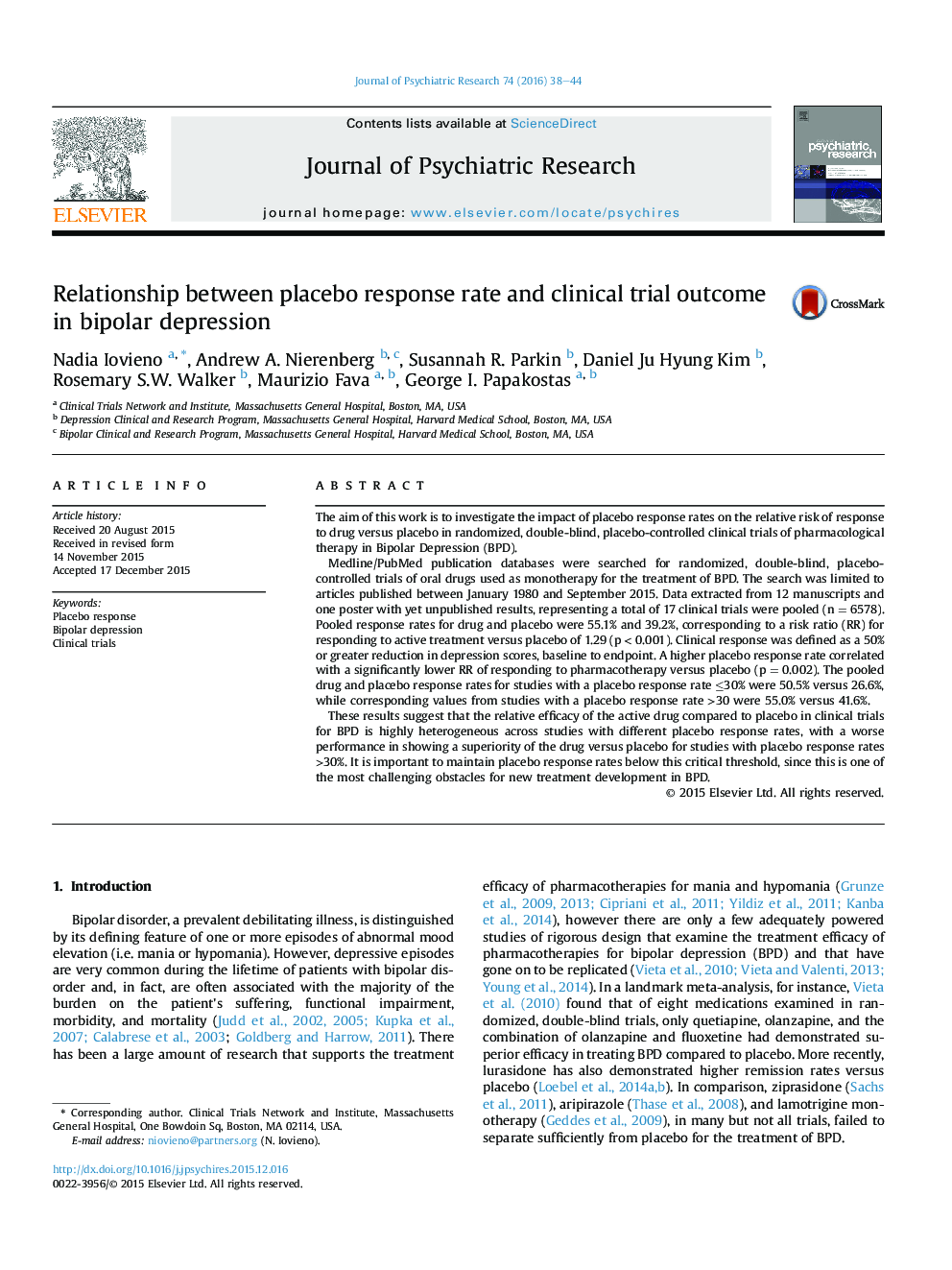| کد مقاله | کد نشریه | سال انتشار | مقاله انگلیسی | نسخه تمام متن |
|---|---|---|---|---|
| 326462 | 542430 | 2016 | 7 صفحه PDF | دانلود رایگان |
• We searched for RCTs of monotherapy oral drugs for bipolar depression.
• We investigated the impact of placebo response rates on the relative risk of response to drug versus placebo.
• Higher placebo response rates correlate with a lower risk ratio of response to drug versus placebo.
• Studies with placebo response rates >30% have a worse performance in showing a superiority of the drug versus placebo.
• Placebo response rates should be maintained below the threshold of 30%.
The aim of this work is to investigate the impact of placebo response rates on the relative risk of response to drug versus placebo in randomized, double-blind, placebo-controlled clinical trials of pharmacological therapy in Bipolar Depression (BPD).Medline/PubMed publication databases were searched for randomized, double-blind, placebo-controlled trials of oral drugs used as monotherapy for the treatment of BPD. The search was limited to articles published between January 1980 and September 2015. Data extracted from 12 manuscripts and one poster with yet unpublished results, representing a total of 17 clinical trials were pooled (n = 6578). Pooled response rates for drug and placebo were 55.1% and 39.2%, corresponding to a risk ratio (RR) for responding to active treatment versus placebo of 1.29 (p < 0.001). Clinical response was defined as a 50% or greater reduction in depression scores, baseline to endpoint. A higher placebo response rate correlated with a significantly lower RR of responding to pharmacotherapy versus placebo (p = 0.002). The pooled drug and placebo response rates for studies with a placebo response rate ≤30% were 50.5% versus 26.6%, while corresponding values from studies with a placebo response rate >30 were 55.0% versus 41.6%.These results suggest that the relative efficacy of the active drug compared to placebo in clinical trials for BPD is highly heterogeneous across studies with different placebo response rates, with a worse performance in showing a superiority of the drug versus placebo for studies with placebo response rates >30%. It is important to maintain placebo response rates below this critical threshold, since this is one of the most challenging obstacles for new treatment development in BPD.
Journal: Journal of Psychiatric Research - Volume 74, March 2016, Pages 38–44
